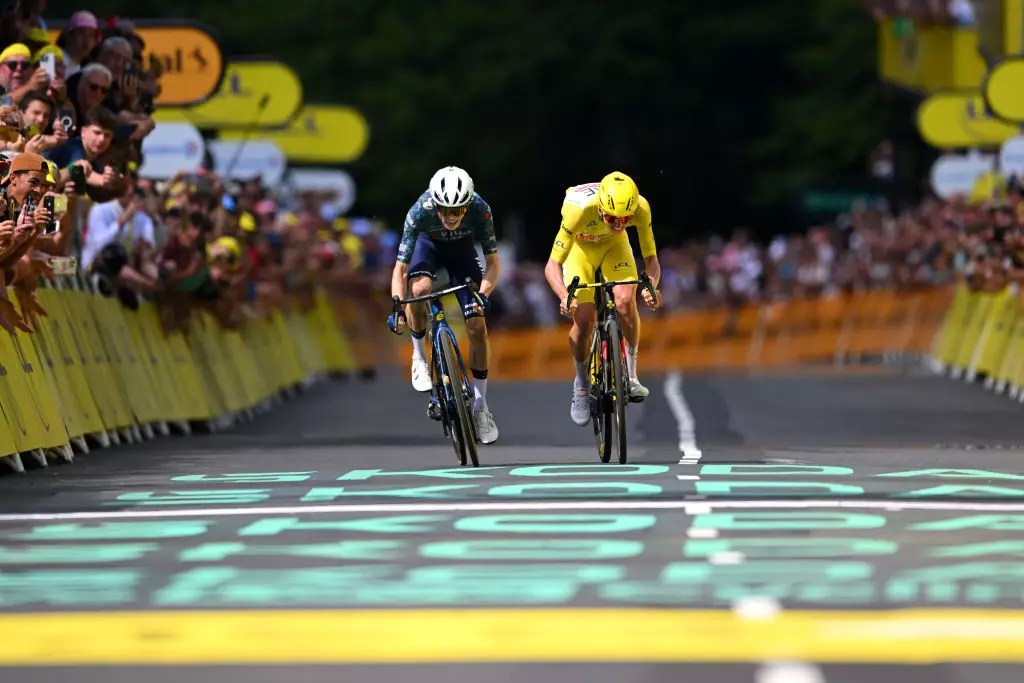The landscape of sports broadcasting in the United Kingdom is undergoing significant changes, particularly concerning the iconic Tour de France. Warner Bros. Discovery (WBD) has emerged as the exclusive owner of the UK broadcasting rights to this prestigious cycling event, a move that has drawn both interest and concern. Traditionally, the Tour de France has been accessible to a broad audience through free-to-air channels, allowing cycling enthusiasts to engage with the race without the barrier of subscription fees. However, WBD’s acquisition, being the sole bidder for these rights, raises questions about future accessibility for casual viewers and avid fans alike.
ITV, the former broadcaster of the Tour, reportedly opted not to pursue the new rights after its current contract expires in 2025. This decision is puzzling given the growing mainstream popularity of cycling in the UK, fueled by Olympic successes and British stars like Bradley Wiggins, Chris Froome, and Geraint Thomas. The departure of a familiar broadcaster like ITV, which has successfully nurtured a dedicated fanbase over the years, could have lasting implications on the sport’s visibility.
The potential transition from free-to-air coverage to a predominantly pay-TV model could significantly alter the dynamics of viewer engagement. Many loyal fans have expressed outrage at the prospect of needing a subscription to follow their beloved event, fearing that this shift will alienate a segment of the cycling community that lacks the means to invest in additional pay television services. As cycling’s popularity surged in the UK—being highlighted by our athletes’ Olympic triumphs and high-profile victories in major tours—the concern is that restricting access to the Tour de France might stifle this momentum.
WBD has not yet detailed its plans for providing free components alongside its paid coverage, but potential options include a highlights package broadcasted on one of its free-to-air channels, such as Quest. While this could bridge some gaps, it would still fall short of providing full live coverage, inherently limiting the immersive experience that cycling enthusiasts have come to expect. It’s a shift that requires careful consideration, lest the sport’s fanbase wane as casual viewers find it increasingly difficult to engage with the racing scene.
The legacy of free-to-air broadcasting for the Tour de France is an essential chapter in the sport’s narrative in the UK. Fans fondly remember Channel 4’s compelling coverage before the event transitioned to ITV in 2001. Throughout its tenure, ITV established a reputation with an engaging commentary team, fostering engagement and inspiring a generation of cyclists and fans. This historical connection is not merely a sentimental memory; it represents a vital channel through which interest has flourished.
It is vital to acknowledge that under the previous model, the synergy between pay-TV coverage on Eurosport and free-to-air broadcasts provided a comprehensive platform for various audiences. While Eurosport has been a champion of cycling coverage since 1991, its paywalls have always been a barrier to entry for many. The combination of platforms allowed for a broad approach that enriched the cycling community.
As we move toward 2026, with WBD now holding the reins, the ongoing dialogue about commercialization versus accessibility will undoubtedly shape the future of cycling broadcasting in the UK. Balancing the demands of a competitive broadcasting market with the need to maintain audience engagement presents a complex challenge.
While ITV’s shift toward rights for soccer matches—likely revealing its focus on more commercially lucrative sports—underscores market trends and audience preferences, it highlights a potential neglect for cycling’s growth and significance. The cycling community must advocate for broader access to the Tour de France that transcends commercial motivations.
As the transition unfolds, stakeholders from various sectors—fans, broadcasters, and cycling organizations—will need to engage in discussions that prioritize audience interests. As the Tour de France approaches its next chapter in the UK, the hope remains that the rich tradition of accessibility will endure, further inspiring a new generation of cycling enthusiasts.


Leave a Reply